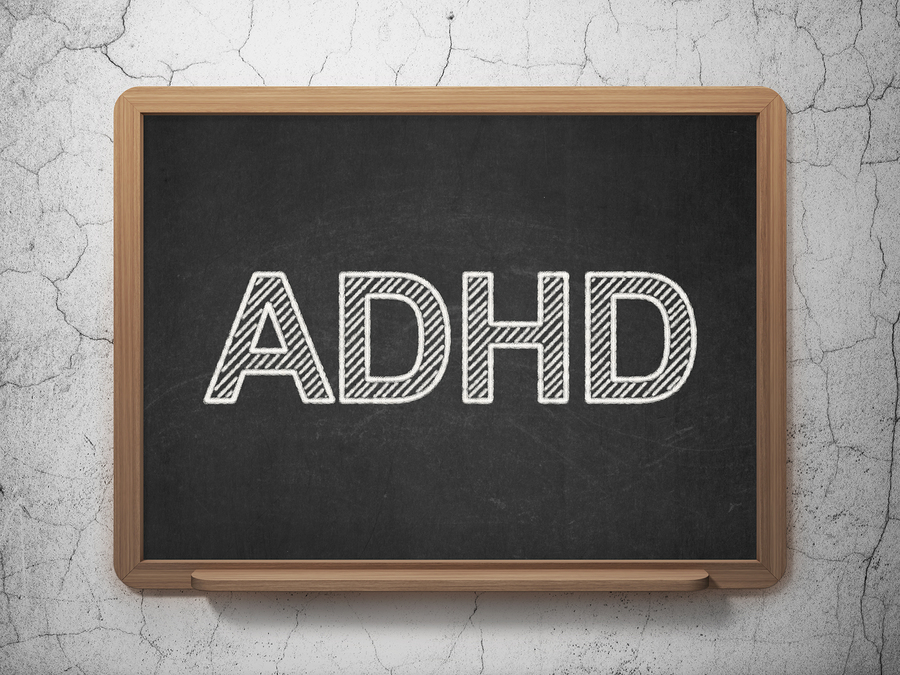 It’s crunch time. For thousands of students in post-secondary studies in the U.S. and Canada, deadlines for term papers, projects and final exams are closing in as the December holidays approach.
It’s crunch time. For thousands of students in post-secondary studies in the U.S. and Canada, deadlines for term papers, projects and final exams are closing in as the December holidays approach.
But for students with Attention-Deficit Hyperactivity Disorder (ADHD) who have faced the added challenge all semester of balancing academic life in college or university with the personal intricacies of life with a behavioral disorder, the upcoming stress of semester finals and due dates can make the next few weeks all the more difficult.
ADHD is a disorder frequently identified in childhood with presenting symptoms that include poor or distracted attention, difficulty concentrating, hyperactivity, and impulsive behavior. In the post-secondary years, ADHD may manifest in different and more complicated ways.
Children and Adults with Attention-Deficit/Hyperactivity Disorder (CHADD) is a U.S-based., non-profit organization offering information and support for people with ADHD. An article on CHADD’s website, Succeeding in College with ADHD, lists some of the effects it can have on adult students including “procrastination or poor organization and time management . . . lack of self-esteem . . . [and] emotional and social problems [with new friends and roommates]”.
Even without ADHD, success in college calls for students to accept new responsibilities and greater independence, setting goals and managing schedules. According to CHADD’s advice, students with ADHD should “practice good self-care”, look for such supports as a coach or study group, manage medication, and seek accommodations.
An article by Allyson G. Harrison, Ph.D. and Yontanan Rosenblum, academics for The College of Family Physicians of Canada, summarized reports from college disability service offices (DSOs) and found that although medically, the intensity of ADHD symptoms tend to lessen through adulthood, DSOs have recorded “a dramatic increase in the number of students presenting . . . with a diagnosis of ADHD from their family physicians”.
CHADD’s website also suggests students contact the DSO as soon as acceptance to the college is confirmed. “Obtaining accommodations and support services at college can dramatically improve the odds of success for students with ADHD.”
Accommodations may include introduction to a special needs advisor who will manage a student’s specific needs. Assistance may include the provision of extra time for exams and papers, recorded lectures, class note-takers, quiet or auxiliary rooms in which to write exams, and alternative methods of test-taking.
In her second blog post for Huffington Post’s Canadian edition, Catherine Bigonnesse, a post-secondary student with ADHD, posed what proves to be a rhetorical question to readers: “Can someone living with ADHD thrive and achieve great things?” As a recent PhD graduate, Bigonnesse is proof positive that the answer is yes.
Through her own lived experiences, Bigonnesse proudly espouses her belief that “even if your brain works differently and . . . your strengths are sometimes (wrongly!) seen as weaknesses in our society, it is possible to achieve great things”. Describing the ups and downs of trying to live on her own during university—with ADHD, Bigonnesse invites readers into her world “from diagnosis to transitioning into adulthood and finding my way to grad school”.
Identified with the disorder in her early 20s, Bigonnesse made the personal decision to try medication when other attempts to manage her symptoms were unsuccessful. The medications proved to be “a game-changer”, helping Bigonnesse out of the haze that had enveloped her brain, finally allowing her “to get through complex tasks without losing my train of thought”.
Ten years after her diagnosis, with successful completion of graduate school in Gerontology, Bigonnesse last month offered a recipe for post-secondary success for other young adults with ADHD.
Learning from her own journey, Bigonnesse realized certain tasks caused her to procrastinate and prolong getting down to them. To counter her brain’s desire to avoid work she labelled “boring” or “extra boring”, she kept up her productivity by alternating work she enjoyed with jobs she typically postponed.
Further, Bigonnesse described her need to defy what she calls the “coexistence of both states of hyper-focus and distraction” that result from ADHD. “Distracted days are difficult to predict, and when they happen, I can't focus at all,” she wrote. To calm the waves that interrupt her concentration, Bigonnesse turns off her cell phone and emails, and finds consolation with digital apps that offer tranquility and quiet her brain.
At other times, “I can . . . spend three hours sitting, working at the computer and forget to eat, use the washroom and move. It's exhausting,” she wrote. When she needs to break her hyper-focus, Bigonnesse has learned to eat snacks, stretch and go “for walks . . . these forced breaks are helping me stay healthy and avoid leaving my workday like a zombie”.
Through trial and error, it is the little things Bigonnesse has realized help her succeed. She keeps a notebook and pen handy to jot down reminders or to-do lists that relentlessly pop into her head and steal her focus. She bought noise-cancelling headphones to block out the incessant sounds permeating her thin-walled apartment, situated on a busy street, close to the sirens of both a fire hall and a police station.
Bigonnesse’s last piece of advice to other post-secondary students with ADHD trying to succeed is one she says took years to realize. She allows herself time to be creative and time to daydream.
References
Bigonnesse, C., (October 19, 2017). 5 Ways I Learned To Thrive As An Adult Living With ADHD. Huffington Post (Canada). http://www.huffingtonpost.ca/catherine-bigonnesse/5-ways-i-learned-to-thrive-as-an-adult-living-with-adhd_a_23245961/?utm_hp_ref=ca-mental-health
Breslau, J., (March 2011). Journal of Psychiatric Research. Childhood and adolescent onset psychiatric disorders, substance use, and failure to graduate high school on time. http://www.sciencedirect.com/science/article/pii/S0022395610002001
CHADD., (Retrieved November 27, 2017). Succeeding in College with ADHD. http://www.chadd.org/Understanding-ADHD/For-Parents-Caregivers/Education/College/Succeeding-in-College-with-ADHD.aspx
Harrison, A.G., Ph.D., & Rosenblum, Y., (August 2010). The College of Family Physicians of Canada. ADHD documentation for students requesting accommodations at the postsecondary level. https://www.ncbi.nlm.nih.gov/pmc/articles/PMC2920775/